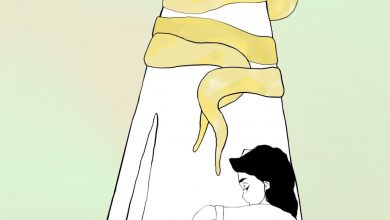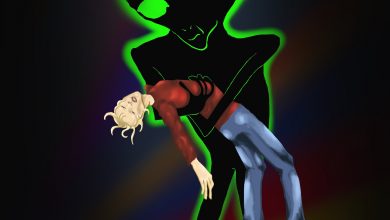Yes, Okay, Do Attribute My Perfectly Legitimate Display of Emotion to “PMS”
Having walked through the hallways of my suburban high school, I’ve experienced my fair share of hypocritical double standards and misogynist cat-calls, the highlight of which was the comeback, “Are you PMSing?” I learned to blame blissful ignorance and disregard these remarks. In my creamy naivete, I assumed such absurdities to be pretty much non-existent in a so-called liberal and literate environment like UCLA.
It was only last week, though, that I was once again confronted with the phrase, “Dude, are you PMSing?” after having asked a group of boys to tone down the EDM bass in the Reading Room – I had to double-check to make sure it was still called the Reading Room and not the vociferate-electronica room, but I digress.
“PMS” has always been used as a way to stifle women from making legitimate complaints or displaying valid emotions, attributing these reactions to an innate weakness or natural “dysfunction.”
Many tend to parallel PMS with “bitchiness.” Just take a look at this gem from Urban Dictionary’s definition of PMS:
“Sometimes women turn into some type of mythical beast.”
“It’s best to avoid them during this transformation..”
“Don’t ever tell a girl she’s PMSing though, it’s never polite. =)”
“Just let the mythical beast be, and within a few days you’ll get your girl back. ;)”
In other “definitions,” women are called unreasonable and said to scratch, slap, or lash out for the “littlest of reasons.” Not only is the grammatical execution atrocious, but the association between PMS and “bitchiness” is horrifyingly incorrect. Also, PMS is simply used synonymously with periods.
This ignorance, however, is just and only that: ignorance.
Fun Fact: PMS is not synonymous with menstruation or periods.
PMS, or premenstrual syndrome, is a condition associated with menstruation where symptoms vary from normative, physical effects like tenderness of breasts and cramps, to severe fluctuations in mood. According to Women’s Health, however, these severe cases only make up about 3%-8% of examples, usually associated with PMDD, with as much as 85% of women experiencing minor physical aches and changes.
Not only is PMS not the mere presence of “the menses,” it is also an extremely rare condition in its severity. Most women simply experience the physical symptoms that are only normative due to the bodily changes associated with periods.
This “insult” of PMS, however, has been so embedded in our dialogue that even women tend to utilize it in their daily conversations (Katy Perry, anyone?). Some women blame other women for being bitchy or moody and link those reactions to PMS, which perpetuates the making of similar claims by men. This is why I believe it’s necessary to “revolutionize” a new outlook on menstruation and its nuances.
Your menstrual cycle is your strength, your power. It’s messy and tampons are a pain, but hear me out.
Throughout the years, many have believed that women’s menstrual cycles were regulated or somehow connected to the phases of the moon. The word menstruation actually comes from the Latin word, menses, meaning month, which is connected to the Greek mene, meaning moon. Although there is very limited scientific connection between these two phenomena (and rightly so), even the women’s health site, Epigee, agrees there is some link between the lunar cycles and menstruation, specifically the full moon in parallel with a peak in mood and emotions.
Science or not, it is a beautiful image: your body is somehow connected to the sky and the world beyond. Far-fetched? Sure. But you can still howl back at the ignorant phrases accusing you of irrationality or over-sentimentality when you’re having a legitimate reaction to a legitimate issue.
You’re a wolf; let them hear you howl.




